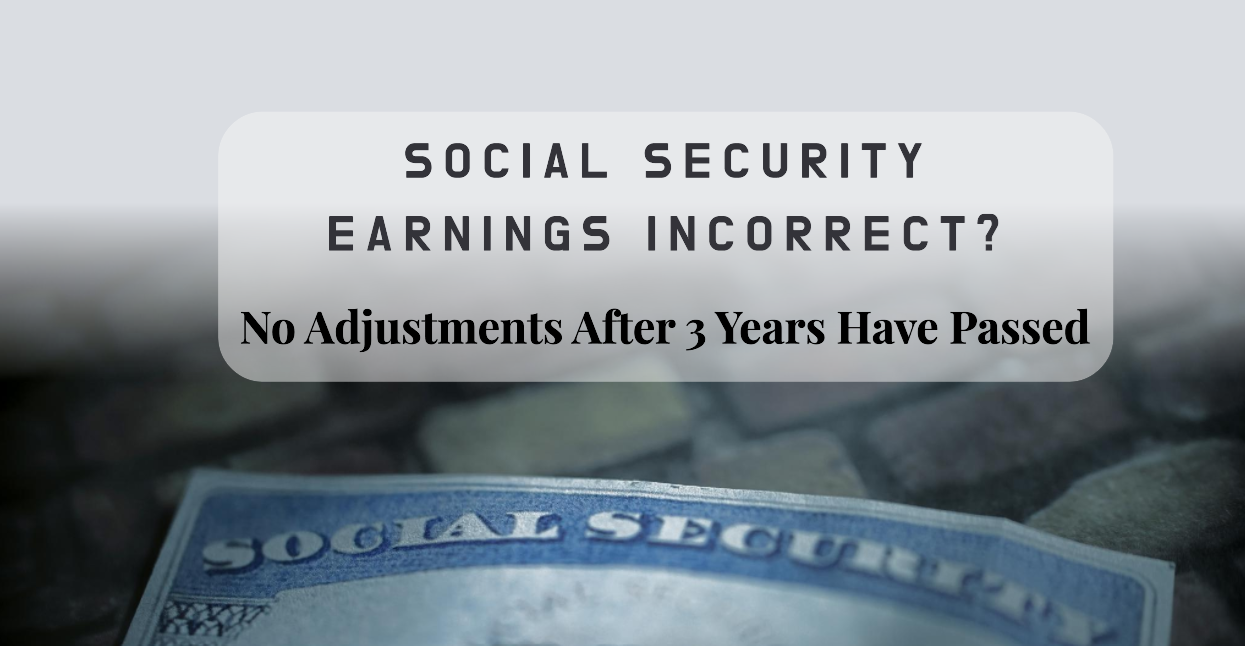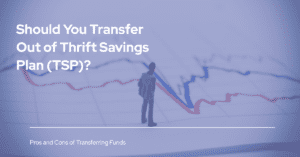How to Report and Correct Earnings Record: Section 515 and SSA Handbook Guidance
The Social Security earnings record is a fundamental element that contributes to the calculation of your Social Security benefits. An accurate earnings record ensures you receive the benefits you’re entitled to upon retirement. Correcting discrepancies within the time limit set forth by Section 515 is crucial. This article guides you through the importance of maintaining an accurate Social Security earnings record, the process and time limits for correcting any mistakes, and employer responsibilities in reporting accurate earnings information.
Why is it important to report and correct errors in your social security earnings record?
How errors in your earnings record can affect your social security benefits
Errors in your Social Security earnings record, such as incorrect wage information or unreported earnings, can significantly affect your future benefits. The Social Security Administration (SSA) calculates your retirement, disability, and survivors benefits based on your earnings history. If your earnings record is inaccurate, you may receive less than what you’re entitled to. Correcting these errors ensures your benefits accurately reflect your employment history and earnings.
Important!
You cannot correct your earnings after 3 years, 3 months and 15 days from the end of the taxable year in which your wages were paid. However, you can correct your record after that length of time to:
- Confirm records with tax returns filed with the Internal Revenue Service.
- Correct errors due to employee omissions from processed employer reports or missing reports.
- Correct errors “on the face of the record” that is, errors we can find by examining our records of processed reports.
- Include wages reported by an employer as paid to a person, but not shown in our records.
The impact of unreported earnings on your social security statement
Ensuring an accurate Social Security earnings record is crucial for determining your benefit amount, as each year’s earnings contribute to a formula that calculates benefits. If reported earnings are too low or unreported, your benefit amount may be substantially reduced. Correcting any errors is imperative to secure the full benefits earned over your working life and prevent potential discrepancies in your Social Security statement, leading to future payment reductions. Regularly reviewing and correcting your earnings record is essential for an accurate reflection of your earnings history in the estimate provided on your Social Security statement.
How to check your Social Security earnings
Log into your Social Security account at: https://www.ssa.gov/myaccount/
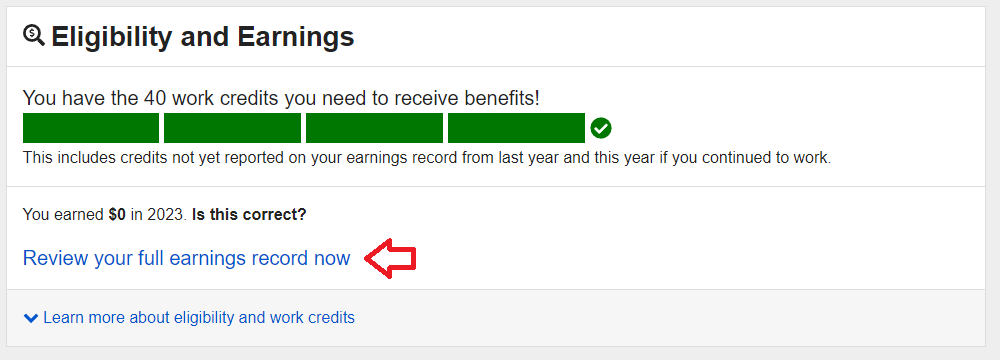
Review your earnings history under “Taxed Social Security Earnings” to see if the earnings history looks correct. If there is a year that looks off it may be due to the social security wage base which is the maximum amount that you would pay into Social Security. For 2023, if you earned over $160,200, then your taxed social security earnings history would only show $160,200.
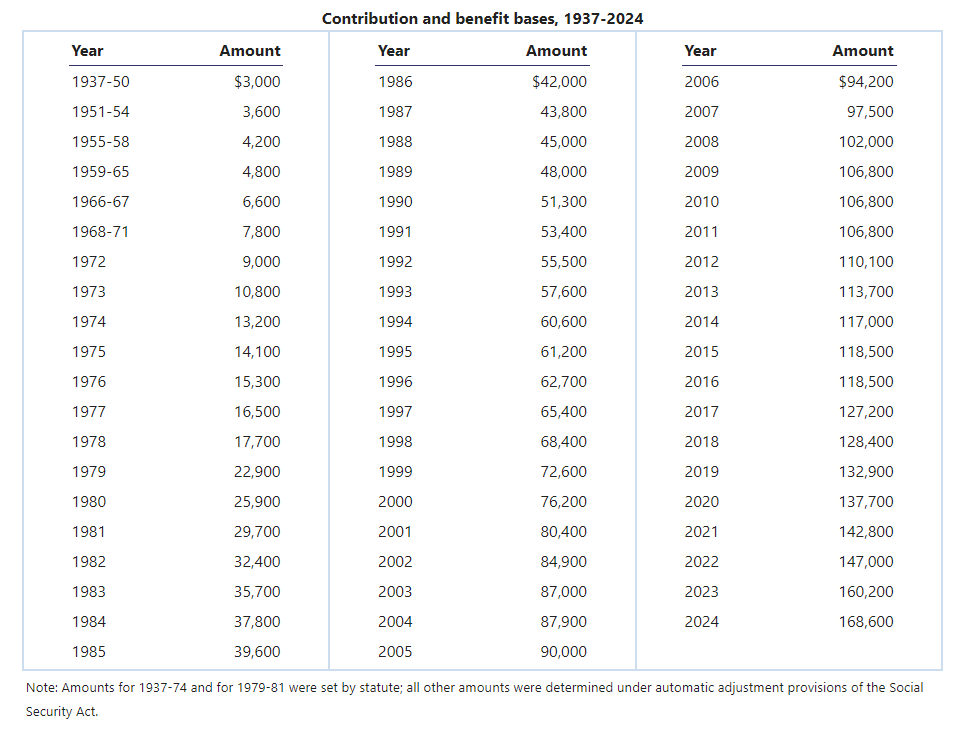

What is the process to correct your earnings record with the SSA?
Step-by-step guide to submitting a correction request to the SSA
To correct errors on your Social Security earnings record, follow a step-by-step process that begins with gathering your employment documents, such as W-2 forms or federal tax returns. Next, complete a “Request for Correction of Earnings Record” form available from the SSA. Submit the form along with your documentation to the SSA for review and correction. The SSA may conduct an investigation into the discrepancy, requiring additional documentation or information.
Form SSA-7008: https://www.ssa.gov/forms/ssa-7008.pdf
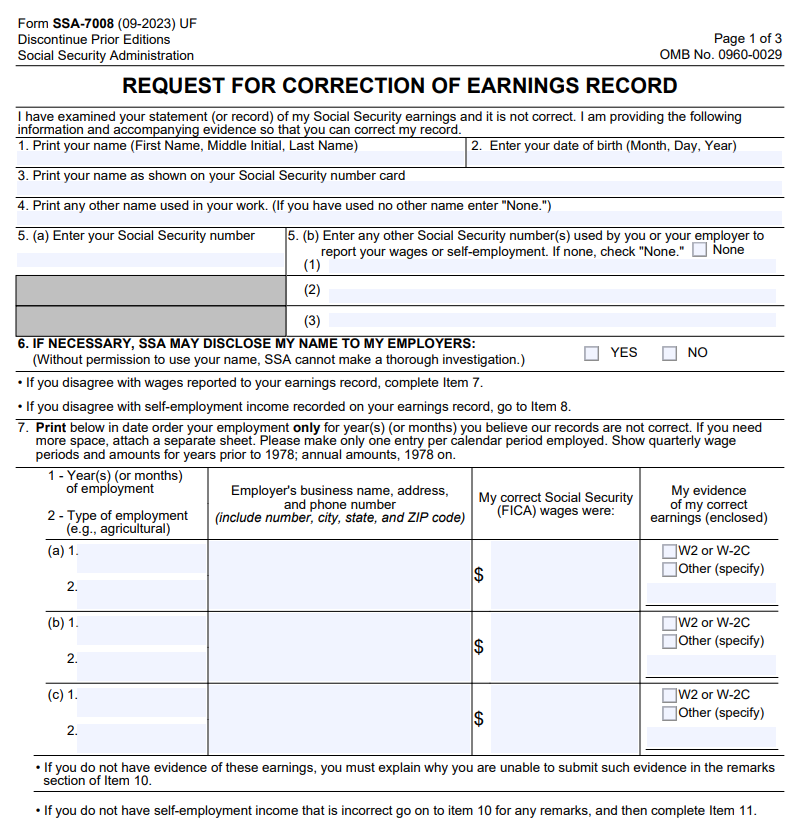

Required documentation for correcting your social security earnings record
Correcting your earnings record requires submitting specific documentation to the SSA. This may include W-2 forms, federal income tax returns, pay stubs, and any records of self-employment income. These documents serve as proof of earnings and are essential for resolving any discrepancies in your earnings record.
How to contact the SSA for assistance with earnings record corrections
If you need assistance with correcting your earnings record, you can contact the SSA directly. You may call the SSA at 1-800-772-1213 (TTY 1-800-325-0778) to speak with a representative who can provide guidance on the correction process. Additionally, visiting a local SSA office allows you to discuss your case in person and obtain the necessary forms and information for correcting your record.
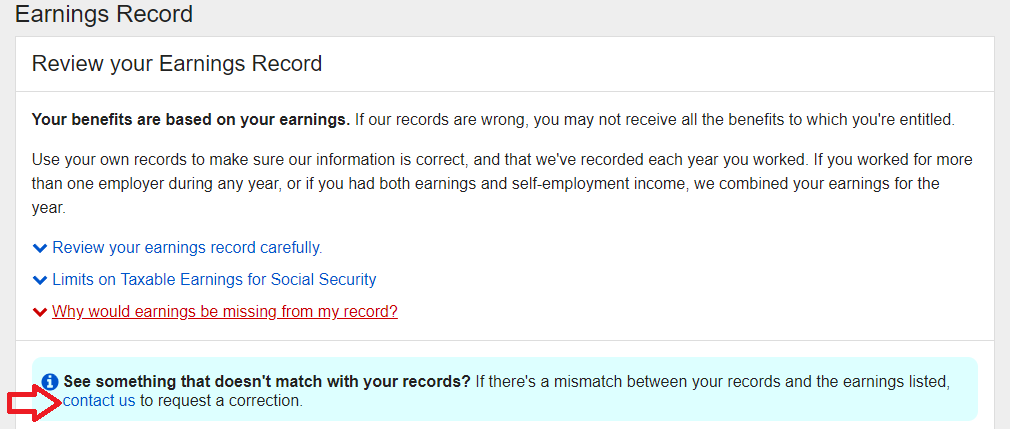

What is the time limit for correcting mistakes on your earnings record?
Understanding the statutory time limit for earnings corrections under Section 515
Under Section 515, there is a statutory time limit for correcting mistakes on your Social Security earnings record. Generally, corrections must be requested within three years, three months, and 15 days after the year in which the wages were paid. However, there are exceptions to this rule, which may extend the period allowing for corrections.
Exceptions to the time limit for correcting earnings record errors
Exceptions to this time limit include errors discovered due to fraud, clerical errors, or an employer not reporting earnings correctly. In such cases, the SSA may allow corrections to be made beyond the standard time limit, ensuring fairness and accuracy in your earnings record.
What happens if you miss the deadline for correction requests?
If you miss the deadline for filing a correction request, correcting errors in your earnings record becomes significantly more challenging, but not impossible. You may need to provide substantial evidence to support your claim for corrections beyond the time limit. The SSA reviews these requests on a case-by-case basis, considering the availability of evidence and the circumstances leading to the late submission.
How can employers correct reported earnings information to the SSA?
Responsibilities of employers in reporting accurate earnings information
Employers play a crucial role in the accuracy of Social Security earnings records. They are responsible for reporting employees’ wages accurately and promptly using the W-2 form. When errors occur, it’s the employer’s responsibility to correct the information by submitting amended W-2 forms to both the IRS and the SSA. This ensures that the employee’s earnings record reflects the correct amount of earnings and taxes paid.
The process for employers to amend previously reported earnings data
To amend previously reported earnings information, employers must submit a corrected W-2 form, known as a W-2c, to the SSA. This form outlines the original reported earnings and the corrected amounts. Submitting a W-2c is an acknowledgment of the initial error and serves as the official request to correct the employee’s Social Security earnings record.
Penalties and consequences for employers providing incorrect earnings information
Employers providing incorrect earnings information may face penalties and consequences, including fines and legal ramifications. It’s in the best interest of both the employer and the employee to ensure that earnings information is reported accurately and corrections are made promptly to avoid these penalties.
Frequent questions about correcting your social security earnings record
Can self-employed individuals correct their earnings record?
Yes, self-employed individuals can correct their earnings record by providing documentation of their net earnings from self-employment, such as federal tax returns. They must follow a similar correction process by submitting a request for correction alongside the necessary evidence to the SSA.
What to do if you discover discrepancies after the time limit has ended?
If you discover discrepancies after the time limit has ended, it’s important to still submit a correction request with as much documentation as possible to support your claim. The SSA will consider exceptions to the time limit based on the availability of evidence and the nature of the error.
How to avoid common mistakes in reporting earnings to the SSA?
To avoid common mistakes in reporting earnings to the SSA, ensure you double-check all information on your W-2 forms or self-employment tax returns before submission. Regularly review your Social Security earnings record for accuracy, and promptly report any errors or discrepancies to the SSA with the appropriate documentation.
Reach Out to Us!
If you have additional federal benefit questions, reach out to our team of CERTIFIED FINANCIAL PLANNER™ (CFP®) and Chartered Federal Employee Benefits Consultants (ChFEBC℠). At PlanWell, we focus on retirement planning for federal employees. Learn more about our process designed for the career federal employee.
Preparing for a federal retirement? Check out our scheduled federal retirement workshops. Sign up for our no-cost federal retirement webinars here! Make sure to plan ahead and reserve your seat for our FERS webinar, held every three weeks. Want to have PlanWell host a federal retirement seminar for your agency? Reach out and we’ll collaborate with HR to arrange an on-site FERS seminar.
Want to fast track your federal retirement plan? Skip the FERS webinar and start a one-on-one conversation with a ChFEBC today. You can schedule a one-on-one meeting here.


